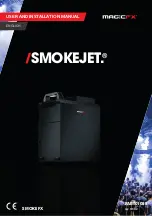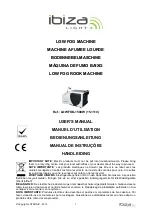
xi
Users in Canada
Pre-Installation Requirements for Canon
Facsimile Equipment___________________________
■
Location
Supply a suitable table, cabinet, or desk. See page S-1 for the machine’s dimensions and weight.
■
Order Information
1. Provide only a single-line to touch-tone or rotary telephone set terminated with a standard 4-
pin modular phone plug. (Touch-tone is recommended if available in your area.)
2. Order a CA11A modular jack (USOC code), which should be installed by the telephone
company. If the CA11A jack is not present, installation cannot occur.
3. Order a normal business line from your telephone company’s business representative. The
line should be a regular voice grade line or the equivalent. Use one line per machine.
DDD (DIRECT DISTANCE DIAL) LINE
-or-
IDDD (INTERNATIONAL DIRECT DISTANCE DIAL) LINE IF YOU COMMUNICATE
OVERSEAS
■
Power Requirements
The power outlet should be a two-prong grounded receptacle (Single or Duplex). It should be
independent from copiers, heaters, air conditioners or any electric equipment that is
thermostatically controlled. The rated value is 120 volts and 15 amperes. The CA11A modular
jack should be relatively close to the power outlet to facilitate installation.
Notice __________________________________________
This equipment meets the applicable Industry Canada Terminal Equipment Technical
Specifications. This is confirmed by the registration number. The abbreviation, IC, before the
registration number signifies that registration was performed based on a Declaration of
Conformity indicating that Industry Canada technical specifications were met. It does not imply
that Industry Canada approved the equipment.
Canon recommends an individual line following industry standards [e.g. the 2500 (Touch Tone) or
500 (Rotary/Pulse Dial) telephones]. A dedicated extension off a PBX machine without “Camp On”
signal is also permissible with your machine. Key telephone systems are not recommended because
they send non-standard signals to individual telephones for ringing and special codes, which may
cause a fax error.












































